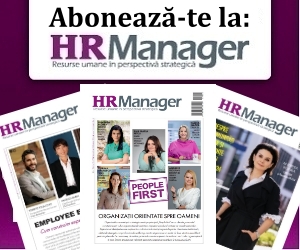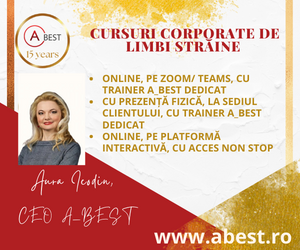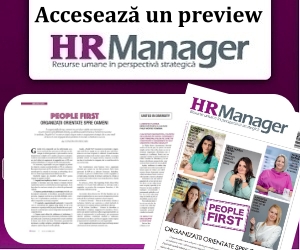
by Simona Elena Pădureţ
The employment market in Romania has had some interesting trends in the last years. Understanding some of these trends and knowing the romanian mentality at work can be essential for the expat managers who want to achieve high standards of productivity when coming to Romania.
Romanian work background and challenges
Coming to Romania doesn’t necessarily imply a cultural shock and getting used to our customs will prove quite easy. Because Rilvan Moving and Relocations values the clients’ feedback, we have asked a couple of assignees to share with us their opinion and experience while working Romania. Their answers were sincere, positive and objective, proof that the Romanian culture is balanced in every way.
“I had visited Bucharest before agreeing to a secondment here, so in a sense there were no surprises about the place. But certainly, before my first visit I had no real idea about what to expect. The media in UK is pretty negative about Romania in general, so I was actually very impressed with what I found here. Bucharest is a great city to live in – something that many people maybe don’t appreciate so much – and it has a mo dern and energetic feel to it. …. Specifically in terms of the work environment, this was quite straightforward as the spoken language is English and as we are all employees of a large international company there is already a mixture of nationalities in the office and a good understanding of different cultural norms.”
There are issues though, reminiscences of the 42 years spent under the communist regime. Don’t be surprised to capture moments of distrust shaped around social relations and towards management
hierarchy. What does this distrust mean? It means that each individual has a generalized latency alert towards everybody: colleagues, managers, authorities, etc. Therefore one may observe individuals set on defense, suspicion, the need to double check and override, the reluctance toward delegation and other such practices. This leads to a massive use of resources to monitoring and control instruments, with direct effects on productivity.
The other tendency is that the new generation has higher expectations from their employers and there’s a real challenge for the HR Manager to bring people from different generations within a company and to help them work and communicate efficiently.
What are the expat’s expectations regarding working in Romania? Were their expectations delivered?
First of all, most of them arrived in Romania with a very positive attitude and with an open heart, mostly because the new assignees were already in contact with other expats that have already been in Romania.
“My expectations are summarized in a desire to discover and adapt to a new culture, based on the testimony of other expatriates. The intercultural training was quickly shown during my visit to the customs, the police officer wished me a vibrant „Happy birthday!” as it was my anniversary – on that day. Romanians are particularly welcoming, they like to communicate and they pay attention to the „small” details in life. This makes the interaction with them as pleasant as possible.”
What is the expat’s feedback about working with romanians in Romania?
Their answer was simply: “no difficulties!”. One of our assignees has discovered the secret of being a much appreciated manager in a French subsidiary company in Romania, as he tries to be an example for his team and to work side by side with his employees:
“For me, the appreciation shown to their work and a positive management, approached with exigency and exemplarity, are the keys to success for a manager in Romania. If you demonstrate every day your proximity to your team and your passion for your job, it becomes very easy to gain their respect.”
What are the main barriers between expats and their romanian employees?
We actually asked this question repeatedly to expats that work a lot will Romanian employees. We were surprised to find out that…there’s no barrier, not even the language barrier!
“None. Without exception they all speak excellent English (or, more accurately, excellent American-English). I am learning Romanian, but this will take some time to master!” says a manager from UK.
“I did not meet obstacles, only “challenges “. The fact of being in total immersion with my Romanian colleagues without speaking English or French allowed me to go much faster in the closeness of others. So overall my Romanian colleagues know to make themselves very well understood, regardless of the language.” says a manager from France.
What would be the romanians’ greatest asset and if the assignees could learn something positive from them?
The answer was the same from most of the expats: positivity and a lot of passion in their work and attitude, if you know how to provide a proper environment in which to make them feel motivated and valued, Romanian employees will deliver a proper level of service. Does it sound like a cliché? No! Actually it’s very easy for an expat to offer all these to their employees.
“My observation is that our Romanian employees work extremely hard, are flexible, and are passionate about what they do. They are also well qualified and ambitious. I suspect that these attributes are not yet fully appreciated in some quarters of the European Community!”
And in the end…what do romanians feel about their expat managers?
The results of the analysis coordinated by Consulteam specialists showed that in the top of the most appreciated expats in Romania we may find the Germans and Austrians (as the Romanian worker feels the need of order and organization in the day to day activity), Spanish and Italians, because of the warmth and cheerfulness when dealing with their employees; and the French, because they are close to the Romanian spirit. If abroad a manager’s technical competency is the most valuable, in Romania, the personality is sometimes even more important than the technical skills, as the manager needs to impose respect and maintain an organized environment at work. This request might be easier and more natural for an expat to do so, taking in consideration the fact that he is more exposed to international environments and standard procedures, public presentations and public meetings than a Romanian manager.
Conclusion
Romania is a cosmopolitan country from all points of view. The business environment is slowly aligning itself to international standards. That is why the cultural shock will be minimal. No language barriers, no way-of-life differences, no difficulties in business adaption.
Our country is good place to start as a new upcoming manager and a perfect place for a seasoned one to reach his career peak. With a little bit of everything for everyone, Romania may prove to be the next must see country from a career point of view.
SIMONA ELENA PĂDUREŢ
Executive Manager
RILVAN Moving & Relocations Romania
Simona has reach experience in the immigration and relocation field, assisting a wide variety of corporate clients as well as executives with comprehensive professional advice. She’s been with Rilvan for more than 9 years, being certified as Global Mobility Specialist (GMS) and also with Excellence in service delivery (ESD), both credentials being issued by professional bodies from global relocation industry (European Relocation Association and Worldwide ERC – the Workforce Mobility Association).























